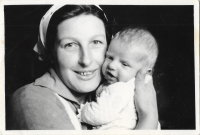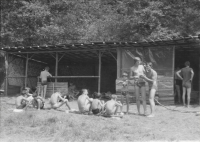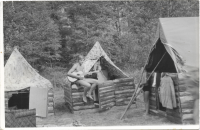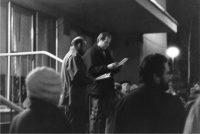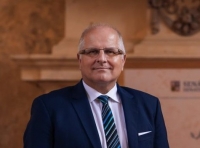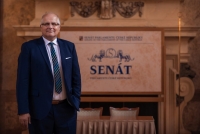Masaryk was a member of Pionýr neither
Stáhnout obrázek
Jiří Šesták was born on November 3, 1956 in České Budějovice as the youngest of three children. His parents were of democratical thinking, his mother admired the president Masaryk, his brother studied art history, and this environment shaped him greatly. In the third grade, the witness for his parents‘ political thinking was not accepted into Pioneer, so he joined the renewed Scout. On August 21, 1968, he spent time at a camp in East Germany, from which they left for a few days later due to the invasion. He witnessed the movement of armies to the border and the cruelty of the occupying forces. As he was unwilling to give up his scout uniform even after Junák was abolished again, he was not allowed to study. He apprenticed to be a locksmith for a short time, and was eventually accepted to the Secondary Agricultural School in České Budějovice. After successfully graduating, he studied at the Theater Faculty of the Academy of Performing Arts in Prague, where he copied and disseminated Charter 77 among students. In November 1989, he was one of the founders of the strike committee at the South Bohemian Theatre, taking part in demonstrations and negotiations with representatives of the communist establishment. After 1989, he became the head of drama at the South Bohemian Theater and later its director. He entered municipal politics and in 2012–2018 he held the position of senator. He lives with his wife and children in České Budějovice.
